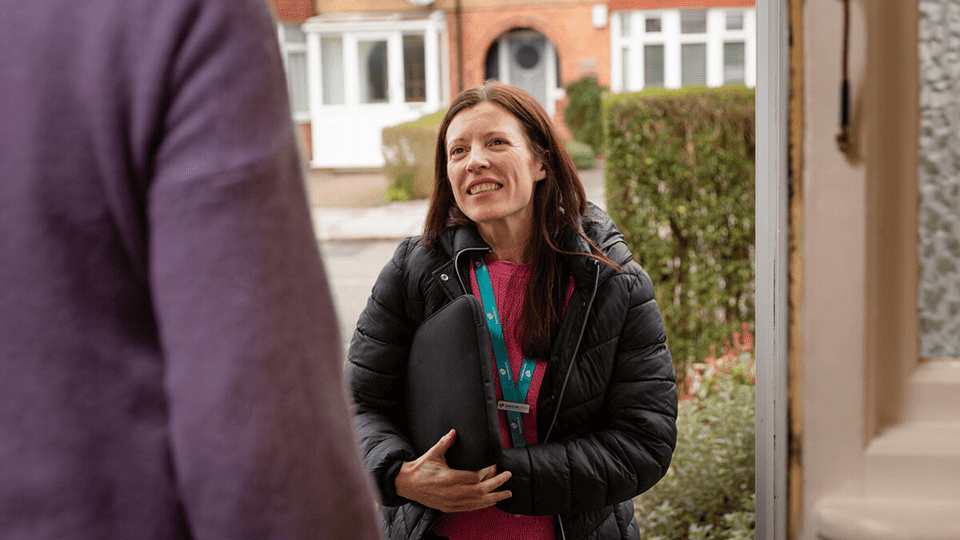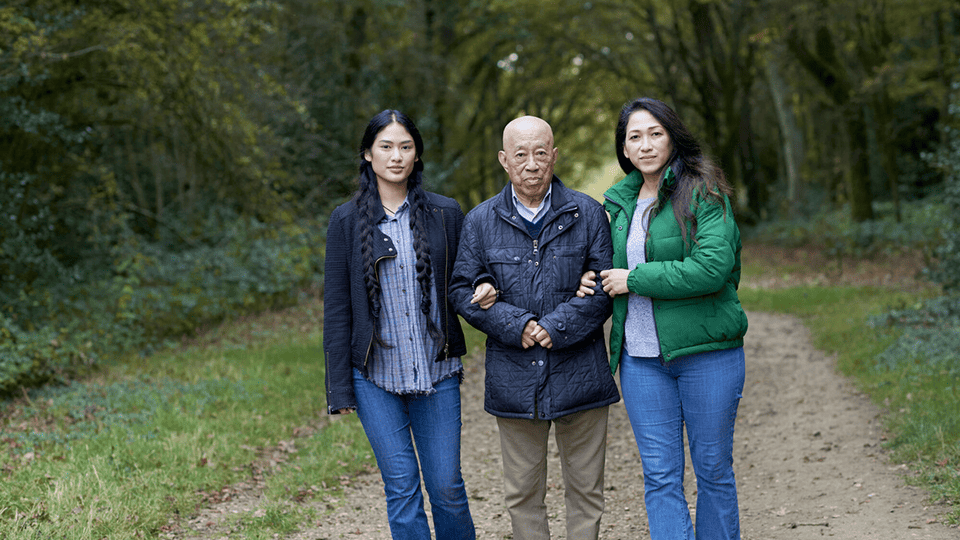
Specialist dementia support for the LGBTQ+ community
Our newly created Consultant Admiral Nurse service for the LGBTQ+ community is an exciting step for Dementia UK.
With the help of dementia specialist Clinical Lead Admiral Nurse Vic Lyons, we have put together some tips to help you navigate the aftermath of Christmas.
Christmas can be a hectic time for all of us, and often generates a range of emotions. Some people find it exciting and uplifting, but others – particularly people with dementia and their family carers – may find it overwhelming and exhausting.
Often, families spend longer periods of time together over the festive season. For others, Christmas is the main occasion for getting together during the year.
If either of these scenarios is true for your family, it may mean that over Christmas, you became more aware of how the person with dementia has changed since you last saw them or noticed first-hand how much support and help they need.
We always get an increase in calls to our Helpline after Christmas, with many callers talking about the changes they have seen over this period.
Top tip
Routine can be important for people with dementia, so if daily life has been very different over Christmas, it could have a knock-on effect on their behaviour and dementia symptoms.
If you notice sudden behavioural changes during or after Christmas, consider factors like:
Write down the changes you have noticed and continue to monitor the person’s behaviour in the days and weeks after Christmas. In some cases, they may improve once everyday life returns to normal, but for others, the changes are caused by the progression of their dementia.
If you notice sudden or acute changes in the person with dementia, seek medical advice. You can also call our Helpline or book an appointment in our virtual clinics to get support from our specialist dementia nurses.
Relatives may be unaware of all that goes into caring for a loved one with dementia or may have a difference of opinion about how things should be managed. This can sometimes lead to disputes or a change in family dynamics, which may be intensified over Christmas. For example:
Christmas and the end of the year can also be a chance for you and your family to reflect and plan for the next year, considering the things that are going well and things you would like to change. Remember, it is normal for families to have different ideas about how they see things moving forward.
Top tips
Not an actual hangover – but the post-Christmas blues that some people feel. January can be a difficult month for many reasons, and it is normal to experience a range of emotions as life returns to normal.
Top tip
Be kind to yourself by following these steps:
For advice from a dementia specialist Admiral Nurse, please call our Helpline on 0800 888 6678 or book a virtual clinics appointment.

Our newly created Consultant Admiral Nurse service for the LGBTQ+ community is an exciting step for Dementia UK.

Hannah Gardner has recently been appointed as Consultant Admiral Nurse for Children and Young People.

Admiral Nurse Lizzie Harrison provides support strategies for young people caring for someone with dementia.